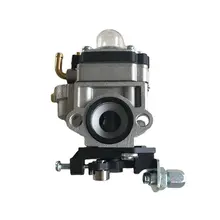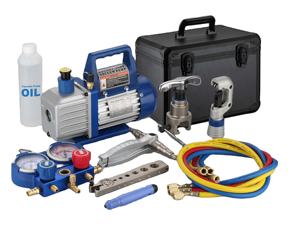The HVAC pump is a crucial component in various heating, ventilation, and air conditioning (HVAC) systems, playing a pivotal role in the efficient transfer of heat or cool air within these systems. Among the diverse types of HVAC pumps, the heat pump is a notable and widely used variant, providing both heating and cooling functions.
Some applications of HVAC pumps
One prominent application of the HVAC pump is in the heat pump air conditioner. These systems operate by transferring heat from one location to another, depending on the season or the desired indoor temperature. During the warmer months, the heat pump air conditioner extracts heat from the indoor air and expels it outside, thereby cooling the interior. Conversely, in colder months, the heat pump reverses its operation, drawing heat from the outdoor air (or from the ground in the case of a geothermal heat pump) and transferring it indoors to provide warmth.
The geothermal heat pump is a specialized form of HVAC pump that taps into the stable temperature of the earth to enhance the efficiency of heating and cooling processes. Unlike traditional air-source heat pumps that rely on the outdoor air temperature, geothermal HVAC systems leverage the consistent temperature of the earth below the surface. This results in a more versatile and energy-efficient operation, making geothermal heat pumps an environmentally friendly choice for those seeking sustainable heating and cooling solutions. The heat pump mini split is another noteworthy innovation in HVAC technology. Mini-split systems are known for their flexibility and zoning capabilities, allowing for customized climate control in individual rooms or zones. In the context of heat pumps, mini splits offer an efficient way to manage heating and cooling needs in spaces with diverse temperature requirements. These systems comprise an outdoor condenser unit connected to one or more indoor air-handling units, providing targeted temperature control and energy savings.
Versatile and efficient HVAC pumps
The versatility of the HVAC pump extends to both residential and commercial settings. In residential applications, heat pump HVAC systems are popular for their ability to provide year-round comfort with a single system. These systems are particularly advantageous in regions with moderate climates, where the demand for both heating and cooling exists but only reaches extreme levels. For commercial spaces, the HVAC pump, especially in the form of geothermal HVAC systems, contributes to sustainability goals by optimizing energy usage and reducing environmental impact.
The operation of an HVAC pump, whether within a heat pump air conditioner or a geothermal heat pump, involves the circulation of refrigerant. As the refrigerant moves through the system, it undergoes phase changes, absorbing or releasing heat depending on the specific requirements for heating or cooling. This continuous cycle, facilitated by the HVAC pump, is the foundation of the efficiency and effectiveness of heat pump HVAC systems. Maintenance of the HVAC pump is crucial for the continued performance of HVAC systems. Regular checks on the pump's components, such as the compressor, condenser, and refrigerant levels, ensure optimal efficiency and prevent potential breakdowns. Timely replacement of worn-out parts or addressing any issues with the HVAC pump contributes to the longevity of the entire HVAC system.










































 浙公网安备 33010002000092号
浙公网安备 33010002000092号 浙B2-20120091-4
浙B2-20120091-4